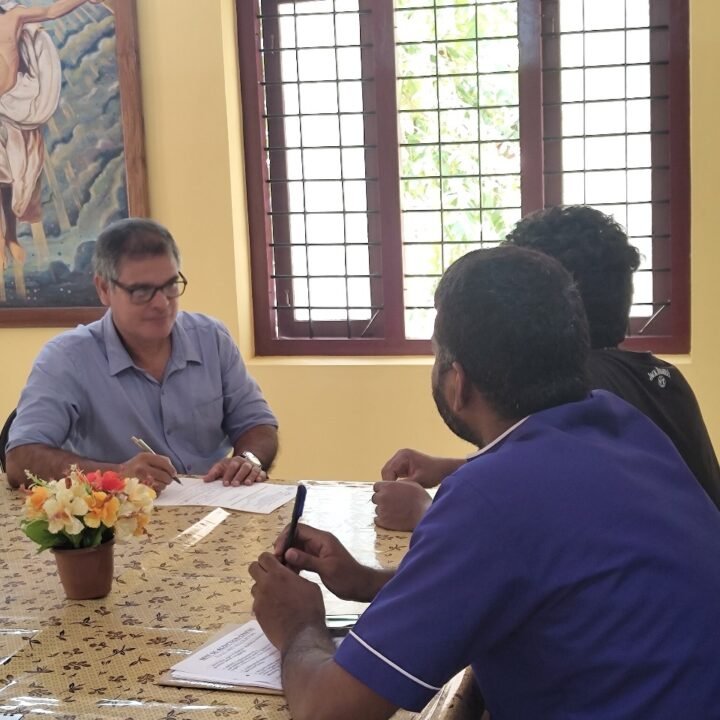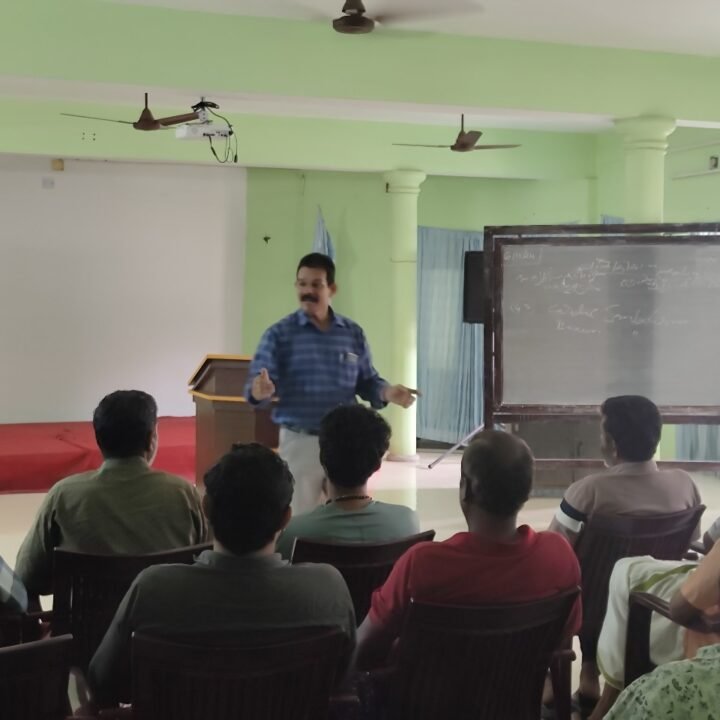Treatment Programs
Spiritual Retreats in NEST is typically designed to provide a holistic approach to recovery that integrates spiritual growth, prayer, and the teachings of the Catholic faith with therapeutic practices to help individuals overcome addiction. Such a program emphasizes the healing of the mind, body, and soul, promoting not only physical and emotional recovery but also a deeper connection with God and an understanding of one’s purpose and dignity.
Key Components of Spiritual Program in NEST for Addiction Recovery
- Daily Mass and Eucharist
- Participants are encouraged to attend daily Mass, where they can receive spiritual nourishment through the Eucharist. The Mass provides a space for prayer, reflection, and renewal, strengthening individuals in their recovery journey.
- Prayer and Meditation
- Prayer plays a central role in healing. The program includes daily personal prayers, group prayer sessions, and meditation, helping participants connect with God and find peace in the midst of their struggles.
- The use of the Rosary, Chaplet of Divine Mercy, and other Catholic prayers are also be incorporated.
- Sacrament of Reconciliation (Confession)
- The sacrament of confession is often emphasized as an important step in spiritual healing. Participants are encouraged to seek forgiveness for their sins, experience God’s mercy, and receive grace for their journey toward recovery.
- Confession helps individuals let go of guilt and shame, which are often linked to addiction.
- Spiritual Counseling and Direction
- Catholic counselors are assigned to guide the individual through their recovery, helping them to discern God’s will in their lives, address spiritual struggles, and grow in their relationship with Christ.
- Spiritual direction focuses on developing a deeper understanding of one’s faith and God’s love.
- Scripture Reflection
- Participants are encouraged to read and reflect on Scripture, particularly passages that address healing, forgiveness, and transformation. Biblical teachings offer hope and encouragement for those recovering from addiction.
- Catechetical teachings about the dignity of the person, the importance of community, and the power of God’s grace are often woven into recovery activities.
- Community and Fellowship
- A sense of community is central to the healing process. Participants are often involved in group activities that foster mutual support, accountability, and shared spiritual growth.
- Group prayer, Bible study, and support groups allow individuals to share their stories, struggles, and successes, forming bonds that strengthen their recovery process.
- Retreats and Spiritual Workshops
- NEST offers retreats and spiritual workshops that provide deeper, immersive experiences of prayer, reflection, and renewal.
- These retreats include times of silence, Eucharistic adoration, guided meditation, and intense spiritual reflection, helping individuals reconnect with their faith in a powerful way.
- Fostering a Relationship with Christ
- The core of the Catholic spiritual program is to help the person develop a personal relationship with Jesus Christ. This relationship is seen as the source of true healing and transformation.
- Healing is viewed as a journey of trust and surrender to God’s will, relying on His grace to overcome addiction and live a renewed life.
- Role of Mary
- Role of Holy Mother Mary as a mother and intercessor serve as sources of strength and encouragement. The intercessory power of the saints is often invoked in prayers.
Integration with Therapy and Counseling
While the spiritual program is at the core, NEST often combines these practices with evidence-based therapies such as:
- Cognitive Behavioral Therapy (CBT)
- 12-Step Programs (with a Catholic perspective)
- Group Therapy and Individual Counseling
- Family Therapy
This holistic approach addresses the psychological, emotional, and physical aspects of addiction while strengthening the individual’s spiritual foundation.
Final Thoughts
de-addiction program in NEST does not merely focus on the physical withdrawal from substances but on spiritual healing, personal transformation, and a renewed sense of purpose through faith. The emphasis is on surrendering one’s struggles to God, seeking the support of the Catholic community, and growing in virtue and holiness.
By integrating prayer, Scripture, the sacraments, and the wisdom of the Church, such a program can help individuals not only break free from the chains of addiction but also find peace, hope, and lasting freedom in their relationship with Christ.
psychology program
NEST typically combines therapeutic practices with a faith-based approach to support individuals struggling with substance use disorders or other addictive behaviors. NEST often integrate the principles of compassion, redemption, and the sanctity of life, alongside psychological interventions that help individuals heal mentally, emotionally, and spiritually.
some key features IN OUR PSYCHOLOGY program include:
Psychology Week Program Structure
- Intake & Assessment: The program begins with an assessment to understand the individual’s addiction history, mental health, and spiritual needs. Based on this assessment, a tailored treatment plan is created.
- Therapy and Counseling: Ongoing individual and group therapy sessions are conducted, focusing on both the psychological and spiritual aspects of recovery.
- Relapse Prevention & Life Skills: Educational workshops and practical skill-building to prepare individuals for life after treatment.
- Family Involvement: Regular family counseling and opportunities for family members to engage in the process of healing.
- Aftercare: Continued support through group meetings, mentorship, and possibly follow-up counseling.
NEST seeks to address the complexity of addiction, combining evidence-based psychological interventions with the healing power of faith. This holistic approach can help individuals regain their sense of purpose and dignity, while also offering the support and guidance they need to stay sober and lead fulfilling lives.
Socio-familial-spritual Week
The witnessing value of those who quit alcohol in NEST is profound, both for the individuals involved and for the broader community.
Testimony of Transformation:
People who overcome alcohol addiction in NEST often provide powerful testimonies of how their lives were transformed by faith and the support of the community. These stories are often filled with moments of grace, where individuals discover their personal strength, reconnect with their faith, and find healing through the sacraments, prayer, and fellowship. Their testimonies act as living proof of God’s mercy and the power of redemption.
Witnessing to God’s Grace:
A key tenet of the Catholic faith is that God’s grace is ever-present and available, and those who recover from alcohol addiction through the programs in NEST often testify to the tangible experience of God’s grace in their lives. Their stories highlight God’s love, mercy, and capacity to heal, which serves to deepen the faith of others who may be struggling in their own lives.
Basic Financial Literacy
- Offering financial education as part of an addiction recovery program is an excellent way to help individuals rebuild their lives. Understanding and managing finances can be a critical part of long-term recovery, as financial instability can sometimes be a trigger for relapse.
- Understanding Money: How money works, basic principles of saving, budgeting, and the importance of financial responsibility.
- Income vs. Expenses: Teaching clients how to differentiate between needs and wants, and the importance of prioritizing essentials like housing, food, and healthcare.
- Bank Accounts & Credit: Explaining checking and savings accounts, credit cards, loans, and credit scores.
- Setting Financial Goals: How to set short-term and long-term financial goals, including emergency savings and retirement planning.
Introduction to Family Dynamics in Addiction
- Understanding the Role of Family in Addiction: Help both the individual in recovery and their family members understand how addiction affects family dynamics, emotional health, and communication patterns.
- The Cycle of Dysfunction: Discuss common patterns in families of individuals with addiction, such as enabling, codependency, and dysfunctional communication, and how these patterns contribute to the cycle of addiction.
- Impact on Children: Explore how addiction can affect children, leading to issues like neglect, emotional trauma, and potentially repeating the cycle of addiction in future generations.
Effective Communication
- Improving Communication Skills: Offer practical tools for improving communication, such as active listening, expressing feelings without blame, and avoiding defensiveness.
- Using “I” Statements: Teach the use of “I” statements (e.g., “I feel worried when…” vs. “You always…”) to express emotions without blaming or accusing others.
- Nonviolent Communication: Teach nonviolent communication (NVC) principles to help family members express their needs in a way that promotes understanding and empathy.
- Conflict Resolution: Train families in how to handle disagreements constructively, focusing on solutions rather than blaming or rehashing old grievances.
Understanding Codependency
- Recognizing Codependency: Help family members identify signs of codependency, where they may be overly focused on the addict’s needs at the expense of their own.
- Breaking Codependent Patterns: Discuss strategies for family members to break free from codependent behaviors, such as setting healthy emotional boundaries and taking care of their own well-being.
- Self-Care for Family Members: Encourage family members to practice self-care and engage in activities that promote their own emotional and mental health.
Co-Occurring Disorders in Families
- Mental Health in Families: Discuss how addiction often co-occurs with mental health issues (e.g., depression, anxiety, PTSD), and how these may affect family members as well.
- Supporting Mental Health: Provide resources and strategies for families to support each other in addressing co-occurring disorders, including seeking professional help and engaging in therapy.
Rebuilding Family Relationships
- Setting New Relationship Dynamics: Guide families in how to build healthier relationships post-addiction, focusing on rebuilding trust, mutual respect, and love.
- Forgiveness: Discuss the role of forgiveness in healing and offer a framework for both the individual in recovery and their family to forgive themselves and each other.
- Re-establishing Boundaries and Roles: After addiction, family roles often shift. Help family members re-establish clear and healthy roles, avoiding old patterns and enabling behaviors.
Key Approaches and Methods:
- Group Therapy for Families: In group settings, family members can share experiences, provide support, and learn from each other’s stories.
- Role-Playing Exercises: Engage families in role-playing exercises to practice healthier communication and boundary-setting.
- Educational Workshops: Provide family members with workshops on addiction, recovery, and mental health to deepen their understanding and empathy.
- Homework and Exercises: Assign tasks for both the individual and family members to complete outside of the session, such as journaling or practicing new communication skills.
Addressing family issues in addiction treatment helps create a foundation of healing that extends beyond the individual, making long-term recovery more sustainable for everyone involved.


